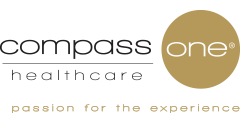
The Impact and Necessity of Nurses
Nurses play one of the most essential roles in providing top-notch patient experiences in hospitals and other specialty care settings, like outpatient and ambulatory care centers. Of course, those of us in the medical profession already knew this — our nurses have long been incredibly valuable in treating patients. Nurses, more than any other medical or support staff, build trust with patients. Americans have ranked nursing as the most trusted profession for eighteen years in a row. Besides their formal duties, nurses often help:
- Advocate for patients
- Provide emotional support for patients and family members
- Offer education to patients
Advanced healthcare technology and increased nurse responsibilities require additional training to ensure nurses adhere to patient-centered practices and promote positive experiences and outcomes.
The Positive Patient Experience
Patients in hospitals often feel fear and anxiety in addition to physical pain. Creating a positive patient experience is vital to ensure the patient is open to receiving the healthcare they need to feel better. Education is at the core of creating a positive patient experience. Nurses continue to shoulder more and more complicated responsibilities, often involving implementing new technology and processes, leading to less time spent building patient relationships. Providing nurses with patient experience education and tips for prioritizing their health can go a long way to improve both outcomes and on-site experience for patients and staff.
Tips to Help Nurses Create Excellent Patient Experiences and Own the Moment
Consider these tips to help you or your nursing staff create an excellent patient experience and own the moment through fostering collaboration, self-care, visualizing patient data, communicating effectively, rounding with a purpose, and serving families.
Fostering Collaboration
Nurses have immense responsibilities and lengthy task lists. It can be all too easy to forget that they're working as part of an extensive team with trained support service colleagues there to help. Foster collaboration between the nursing staff and support teams with a few of these ideas:
- Include all staff members in huddles. Bringing both clinical and non-clinical staff together in daily huddles can improve associate morale and also contribute to higher levels of teamwork, which drives patient loyalty.
- Celebrate joint successes with nurses and support staffers.
- Respond to patient concerns regarding any staff member.
- Discuss how to approach critical conversations.
Self-Care
No one, not even healthcare heroes, can serve from an empty cup. Nurses spend their time on the job caring for others, then often go home to face the challenges of a busy personal life and caring for a family. Many nurses find it challenging to slow down and care for themselves; however, the advice we receive before takeoff applies here too: secure your own oxygen mask before assisting others. Promote and normalize self-care that improves nurse health within your hospital by trying a few of these activities:
- Hold discussions about effective coping mechanisms for stress.
- Debrief stressful situations. Nurses are frequently under high-stress, without situational support, these moments can lead to longer-term moral distress or worse.
- Offer healthy options in the café for nurses and other staff members.
- Promote the physical and mental health benefits of regular exercise.
- Register for HealthyNurse HealthNation.
Digestible Data Board
A data display of departmental specific patient experience scores and goals can help educate and engage nursing staff. Easy-to-digest data boards can also help raise score awareness within the nursing team, and stress the importance of Patient Experience (HCAHPS) scores within the management team and hourly staff. Encourage nurses to share and review patient experience data by:
- Posting patient experience data in an easy-to-find, central location
- Refreshing data regularly - we recommend monthly
- Reviewing the data periodically and compare it to past or monthly scores
- Discussing ways to improve patient experience scores with your nursing team
- Quizzing each other on what the Digestible Data Board scores represent
Managing Up Team Members
Managing up involves taking ownership or action to create a positive impression of another person, department, or process before the patient, visitor, or customer has the opportunity to meet them. Through managing up, nurses can positively impact patient perceptions of teamwork and collaboration. By intentionally creating positive impressions of others (physicians, housekeepers, radiologists, etc.) who will be a part of a patient's hospital experience, nurses can contribute to a culture of education, awareness, and comfort for all customers. Consider a few of these exercises to help your nurses learn to manage up:
- Discuss managing up other departments. For example, ask your team, "How can we manage up radiology? When would be an appropriate time to do this?"
- Experiment with role play. Ask one of your frontline staff to pretend to enter a patient room to attend to an IV. Instruct them to act out seeing the housekeeper doing a great job cleaning the patient's room—roleplay managing up the housekeeper.
- In a daily huddle, discuss the importance of following up with patients after managing people up. Remind them that follow up discussions help verify if the expectations they set with the patient about their team members were met.
Hourly Rounding and Rounding With a Purpose
Performing rounds is one of the most time-intensive parts of a nurse's job. Set nurses up for successful and intentional hourly rounding that improves patient satisfaction, nursing efficiency, and productivity while decreasing call lights by:
- Reviewing the four P's (pain, positioning, placement, and personal needs) on every round.
- Practicing responding to call lights while rounding on another patient in a daily huddle. Roleplay is a great way to practice without the pressure of a real-life scenario.
- Setting expectations with patients on the frequency of rounds and how to get help aside from rounds.
- Ensuring patients have everything they need within easy reach.
Service Recovery
Sometimes, patients and their family members might be unhappy with an outcome or part of their healthcare experience. However, their experience doesn't have to end negatively. Service recovery can change a negative experience for a patient into a positive experience. Use these tips to help improve their situation and emotions:
- Review and discuss regular complaints as a nursing team to find ways to avoid them.
- Know who to go to when a patient or their family is unhappy.
- Practice de-escalating a situation that involves an upset family member in a daily huddle.
- Maintain professionalism and remember not to take patient or family anger personally. However, encourage nurses to debrief stressful or negative situations with someone else on their team, so those interactions do not negatively affect their mental health.
We know how challenging it can be to create and implement a brand new education and training program. We have several excellent resources available to help your nursing team improve their patient-centered care and own each moment they have with a patient. Let us know how we can help you create a positive patient experience through our various resources and supports.
Compass One Healthcare is a proud partner of Healthy Nurse, Healthy Nation™ (HNHN) Grand Challenge. Together we're helping address concerns associated with nurses' health and improve the health and wellness of America's four million nurses.


